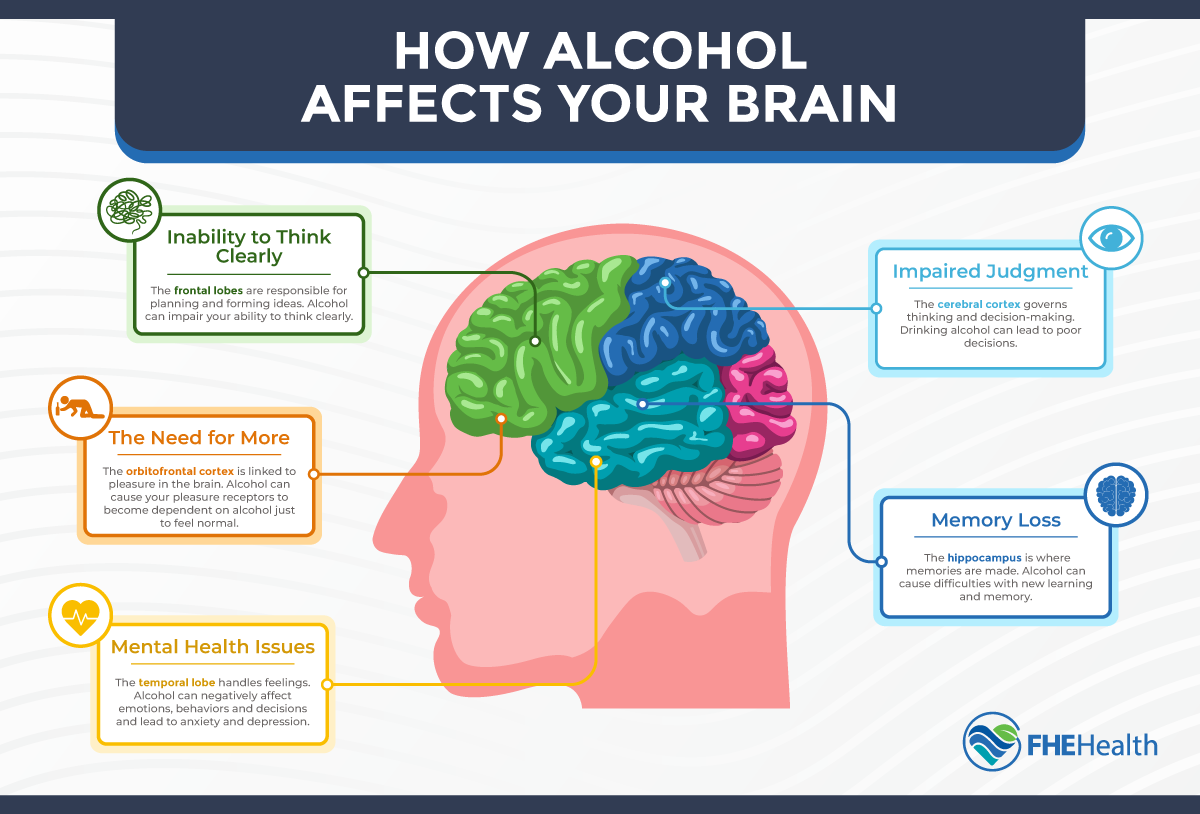Alcohol and Dementia: Can You Reverse Drinking’s Damage to Your Brain? Insights from a Neurology Expert
Alcohol and Dementia: Can You Reverse Drinking’s Damage to Your Brain? Insights from a Neurology Expert
Alcohol is woven into many social lives—nearly two-thirds of U.S. adults consume it, and almost 20% occasionally overindulge. But mounting evidence shows that alcohol, especially in excess, has profound negative effects on the brain. That raises crucial questions: Does drinking contribute to dementia? And if so, can any brain damage be reversed? We turned to Dr. Dylan Wint, MD, a quadruple-board-certified expert in neurology, psychiatry, behavioral neurology, and neuropsychiatry at Cleveland Clinic’s Lou Ruvo Center for Brain Health, to get informed answers. (thehealthy.com)
🧠 What Is Alcohol-Related Brain Injury (ARBI)?
Alcohol-Related Brain Injury (also called ARBD) refers to damage from long-term heavy alcohol use. The National Institute on Alcohol Abuse and Alcoholism (NIAAA) defines “heavy” drinking as:
-
Men: 5+ drinks/day or 15+ drinks/week
-
Women: 4+ drinks/day or 8+ drinks/week (alcoholchange.org.uk)
How ARBI develops:
-
Alcohol overstimulates neurons and harms the brain’s white matter, disrupting communication between brain regions.
-
It impairs blood flow and causes neuron loss, particularly in the frontal lobes (decision-making/emotions) and cerebellum (movement coordination).
Another serious effect is thiamine (vitamin B1) deficiency, causing Wernicke-Korsakoff syndrome—a severe memory disorder stemming from poor nutrition and absorption. (neurotriage.com)
Chronic alcohol abuse may also trigger Marchiafava-Bignami disease, which damages the corpus callosum and leads to coordination, speech, and cognitive issues.
🚨 Alcohol and Dementia: What You Need to Know
Long-term heavy drinking raises the risk of alcohol-related dementia, distinct from Alzheimer's. It leads to neuron death and cognitive decline—but the good news is that it's not always progressive if alcohol use stops early enough. (my.clevelandclinic.org)
Other dangers include:
-
Formation of amyloid plaques (linked to Alzheimer’s)
-
Liver damage, which increases toxic levels in the blood
-
Stroke risk from hypertension and vascular damage
-
Potential for falls and head injuries due to intoxication
Mental health also suffers—alcohol disrupts neurotransmitters, triggering mood disorders, anxiety, and depression. Physically, it leads to balance problems, neuropathy (numbness, tingling), and increased stroke risk.
🔍 How Much Alcohol Is Safe?
There is no universally safe level of alcohol. While moderate drinking—up to one drink per day for women and two for men—may not cause harm for healthy individuals, Dr. Wint advises that those at risk for neurological disorders should avoid alcohol altogether. (thehealthy.com)
One drink is defined as:
-
12 oz beer (5% alcohol)
-
8 oz malt liquor (7%)
-
5 oz wine (12%)
-
1.5 oz spirits (40%)
For older adults (60+), even these moderate levels may be too much.
🧬 Can Brain Damage from Alcohol Be Reversed?
Yes—to an extent. Research shows that abstinence and rehabilitation can lead to functional and structural brain improvements.
-
ARBI is non-progressive if alcohol use stops. Many brain functions can recover. (neurotriage.com)
-
Brain volume and performance on memory, decision-making, and balance tasks improve with prolonged sobriety. (en.wikipedia.org)
-
Memory rehabilitation and cognitive therapy help those with Wernicke-Korsakoff, though some deficits can remain permanent. (en.wikipedia.org)
Dr. Wint notes: “Functional improvement may be possible with rehabilitation and preventing further damage from alcohol and other toxic lifestyle habits.” (thehealthy.com)
📈 New Research: Even Low Levels Raise Dementia Risk
Recent studies show that even moderate drinking (8 drinks/week) increases brain lesion risk:
-
8+ drinks/week => 133% higher likelihood of vascular brain lesions
-
Former heavy drinkers face 60% increased risk
-
Higher prevalence of Alzheimer’s markers (tau tangles) (people.com, health.com)
Experts warn: no level of drinking is completely safe for brain health.
🧩 Other Lifestyle Factors Influencing Dementia Risk
Alternative protective habits include:
-
Physical activity
-
Balanced diet and good sleep
-
Mental stimulation
-
Healthy social interaction
-
Blood pressure and diabetes control
-
Avoiding smoking and managing depression
These align with Dr. Wint’s Six Pillars of Brain Health from Cleveland Clinic.
🧳 Summary Table: Key Points
| Factor | Impact on Brain Health |
|---|---|
| Heavy alcohol use (ARBI) | Neuronal damage, white matter loss |
| Thiamine deficiency | Wernicke-Korsakoff syndrome |
| Liver damage + vascular injury | Increases toxin/lesion risk |
| Mood & motor effects | Depression, neuropathy, balance issues |
| Abstinence | Can partially reverse brain shrinkage |
| Moderate drinking | May still raise brain lesion risk |
🛠 Steps to Protect Your Brain
-
Assess your drinking habits. Keep below recommended limits (≤ 7 drinks/week ideally).
-
Seek help if stopping alcohol is difficult. Consult a specialist or call SAMHSA's 24/7 hotline: 1‑800‑662‑4357. Rehabilitate with cognitive therapy, nutritional support, and physical exercise.
-
Monitor cognitive function through regular check-ups.
-
Adopt brain-healthy habits: diet, exercise, sleep, mental and social activities.
✅ Final Thoughts
Alcohol’s harm to the brain—from structural damage to cognitive decline and mood disorders—is undeniable. But there is hope:
-
Early lifestyle changes can arrest progression.
-
Abstinence, nutrition, therapy, and brain-training foster recovery.
-
Even moderate drinking might pose risks, so staying within low limits is best.
If you're concerned about your or a loved one’s drinking, don’t wait—consult a healthcare professional. The sooner you act, the better your brain’s chance to recover and thrive.
Open Your Mind !!!
Source: Thehealthy



Comments
Post a Comment